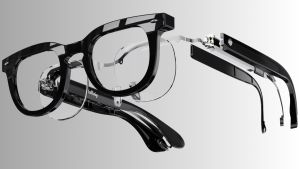
Technology
Cyber Trust Mark Initiative Aims to Secure Smart Devices in the U.S.
Disney Acquires Majority Stake in FuboTV to Expand Streaming Reach
Entertainment
In a bold strategic move, Disney has acquired a 70% majority stake in FuboTV, merging it with Hulu + Live TV to …
Zendaya Sparks Engagement Rumors with Golden Globes Appearance
Entertainment
Zendaya turned heads at the 2025 Golden Globe Awards, not just for her stunning fashion choice but for the sparkling diamond ring …
India Detects First HMPV Case in Bengaluru Baby
Health
Bengaluru has become the focal point of India’s first suspected Human Metapneumovirus (HMPV) case after an eight-month-old infant was diagnosed with respiratory …
Winter Storm Causes Widespread Disruptions Across Midwest and East Coast
LifeStyle
Winter Storm Blair has brought snow, ice, and freezing rain to much of the Midwest and East Coast, creating hazardous travel conditions …
Halliday’s AI Smart Glasses Revolutionize Wearable Technology
Technology
Halliday’s debut at CES 2025 has left tech enthusiasts buzzing with excitement as the company unveiled its revolutionary AI-powered smart glasses. These …
What to Know About China’s Human Metapneumovirus (HMPV) Outbreak
Health
China is currently facing a spike in human metapneumovirus (HMPV) infections, predominantly affecting children under 14. The outbreak, as reported by Newsweek, …
Why Meta Pulled AI Profiles From Facebook and Instagram
Technology
Meta has abruptly discontinued its AI-generated profiles on Facebook and Instagram after facing widespread criticism. Introduced in late 2024, these profiles were …
Meta Opens the Floodgates for AI-Generated Accounts on Facebook and Instagram
Technology
Meta, the tech giant behind Facebook and Instagram, has announced plans to implement AI-generated user accounts on its platforms. These accounts will …













